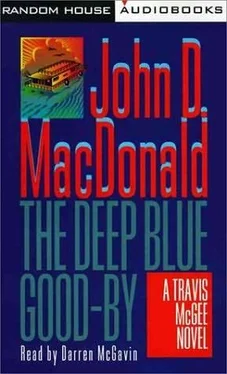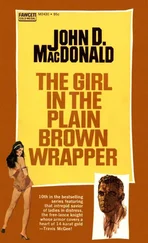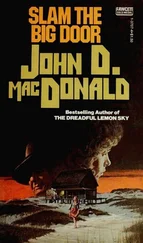“Where does she live?”
“Unless she’s moved-she moves a lot-she’s in the Citrus Inn. It’s up like opposite Deerfield Beach, kind of an apartment-hotel kind of thing, sort of old and cruddy. In 2A up there, with a girl named Corry, that’s where she was last I knew, getting her unemployment.”
That was all the time she could spend with me. She slid out of the booth, patting at the blue and white skirt of her nylon uniform. She seemed to hear the total effect of her own words, and looked a little disconcerted. She was a strong-bodied girl whose rather long neck and small head made her look more delicately constructed than she was. Her fine silky hair was a soft brown with bleached streaks.
“Don’t get me wrong about Deeleen,” she said. “I don’t want you should think I’m trine to cut her up. The thing is, she had an unhappy love affair when she was just a kid.”
“How old is she now?”
“Oh, she’s twenty now.” She hesitated. She was obligated to end our little chat with a stylized flourish. The way it’s done in serial television. So she wet her little bunny mouth, sleepied her eyes, widened her nostrils, patted her hair, arched her back, stood canted and hip-shot, huskied her voice and said, “See you aroun‘, huh?”
“Sure, Marianne. Sure.”
Bless them all, the forlorn little rabbits. They are the displaced persons of our emotional culture. They are ravenous for romance, yet settle for what they call making out. Their futile, acne-pitted men drift out of high school into a world so surfeited with unskilled labor there is competition for bag-boy jobs in the supermarkets.
They yearn for security, but all they can have is what they make for themselves, chittering little flocks of them in the restaurants and stores, talking of style and adornment, dreaming of the terribly sincere stranger who will come along and lift them out of the gypsy life of the two-bit tip and the unemployment, cut a tall cake with them, swell them up with sassy babies, and guide them masterfully into the shoal water of the electrified house where everybody brushes after every meal.
But most of the wistful rabbits marry their unskilled men, and keep right on working. And discover the end of the dream. They have been taught that if you are sunny, cheery, sincere, group-adjusted, popular, the world is yours, including barbecue pits, charge plates, diaper service, percale sheets, friends for dinner, washer-dryer combinations, color slides of the kiddies on the home projector, and eternal whimsical romance-with crinkly smiles and Rock Hudson dialogue.
So they all come smiling and confident and unskilled into a technician’s world, and in a few years they learn that it is all going to be grinding and brutal and hateful and precarious. These are the slums of the heart. Bless the bunnies.
These are the new people, and we are making no place for them. We hold the dream in front of them like a carrot, and finally say sorry you can’t have any. And the schools where we teach them non-survival are gloriously architectured. They will never live in places so fine, unless they contract something incurable.
I went north of the mainland route, past an endless wink and sputter of neon, through the perpetual leaf-fall and forest floor of asphalt, cellophane, candy wrappers, Kleenex, filter tips, ticket halves, Pliofilm and latex. One of Junior Allen’s women lay wounded and the other lay drunk, and I was looking for a third.
The Citrus Inn was an old place, a three-story cube of cracked and patched Moorish masonry, vintage 1925, with three entrances, three sets of staircases, three stacks of small apartments. It was on a short, dead-end street in a commercial area. It was across the street from a large truck depot, and bracketed on one side by a shoestring marina and on the other by a BEER-BAIT-BOATS operation which had a tavern specializing in fried fish sandwiches. There was a narrow canal behind the three structures, sea-walled, stagnant.
The Citrus Inn had its own eroding dock, parallel to the sea wall. I had parked in front. I walked around the unlighted side of the Citrus Inn. I stopped abruptly and moved off into deeper shadows. There were two darkened old hulks tied up to the Citrus Inn dock. The third craft was lighted inside, and a weak dock light shone against the starboard side of it and into the cockpit. It shone on the life ring. The Play Pen.
There were several of them in the cockpit. I couldn’t see them distinctly. They had music going, the hesitating rhythms of Bossa Nova. A girl moved to it. Another girl laughed in a slurred sour way. A man said, in a penetrating voice, “Dads, we are just about now out of beer and that is a hell of a note, Dads. Somebody has got to trek way the hell to Barney’s. You going to do us like this in the islands, Dads? You going to let us run out of the necessities of life once we get over there?”
Another man rumbled some kind of an answer, and a girl said something which the music obscured. In a few moments two of them came by me, heading for the tavern. I saw them distinctly when they clambered up onto the dock, a husky, sideburned boy with a dull fleshy face, and a leggy awkward girl in glasses.
As they passed me the girl said, “Shouldn’t you buy it one time anyway, Pete?”
“Shut up, Patty. It makes Dads happy to spring for it. Why spoil his fun?”
I had my first look at Junior Allen. It wasn’t much of a look. He was a shadowy bulk in the cockpit of the boat, a disembodied rumble of a voice. A single bark of laughter.
When I got back to the Busted Flush, Lois was still out. I sat her up. She whined at me, her head heavy, her eyes closed. I got her up and took her over to the beach and walked her until she had no breath for complaining. She trudged along, dutiful as a naughty child. I walked her without mercy, back and forth, until her head was clear, and then we sat on a public bench to give her time to catch her breath.
“I’ve got a ghastly headache,” she said in a humble voice.
“You earned it.”
“I’m sorry, Trav. Really. Seeing him scared me so.”
“Or gave you an excuse?”
“Don’t be hateful.”
“I just don’t like to see you spoil what you’re trying to do.”
“It won’t happen again.”
“Do you mean that?”
“I don’t know. I don’t want it to happen again. But I keep thinking… he could come walking along this beach right now.”
“Not tonight. He’s busy.”
“What!”
I told her how and where I had found him. With a sideburned boy named Pete, and three girls named Deeleen, Patty and Corry.
“From the little I heard, he’s taking all of them or some of them on a cruise to the Bahamas. They think they’re working him. They think they’ve found a very soft touch. They call him Dads.”
“Can’t those poor kids see what he is?”
“Cathy didn’t. You didn’t.”
“What are you going to do?”
“Go see if I can make a date tomorrow afternoon.”
“They might be gone.”
“I think he’ll wait until he gets the new generator installed.”
“But what if he leaves with them in the morning?”
“If that seems too dreadful to you, Lois, you can always get drunk.”
“You don’t have to be so cruel.”
“You disappointed me.”
“I know. I’m sorry.”
“How’s your head now?”
“A little better, I think. Trav?“
“Yes, honey.”
“Trav, I’m so hungry I could eat this bench.”
When I took a look at the outdoors Sunday morning I knew they weren’t going anywhere. It was a sparkling day. The wind had swung around and it was coming out of the northeast, hard and steady. A wind like that builds too much of a chop out in the Stream for anything the size of Junior Allen’s cruiser. It would be running seven or eight feet out there, and very dirty.
Читать дальше












